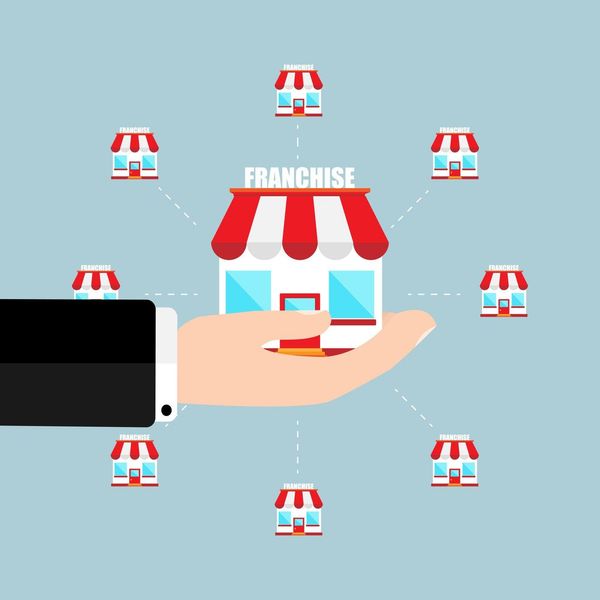
8 Reasons Not to Franchise Your Business
I realized that just about anything can be franchised when I walked through a franchise trade show in the 1980s and saw on the same aisle a franchised bungee jumping business and a franchise for a business selling cardboard coffins. In my own practice today I represent a franchise system whose franchisees host birthday parties in warehouses filled with giant inflated moon-bounce equipment, and another that removes hailstone damage from automobiles without repainting.
It’s easy to conclude that if it has a trademark and a pulse, it can be franchised—but just because anything can be franchised doesn’t mean it should be.
Here are the top eight red flags suggesting that a company should not franchise its business.
8 reasons not to franchise your business
1. Too many moving parts
The most successful franchises have simplified their concepts so that franchisees can replicate them with high-quality—or at least standardized—results. A restaurant concept that involves white tablecloths, a full wait staff, and an extensive menu poses some serious challenges in a franchise context. It would require extensive training of a large number of people to convey the intellectual property that comprises the franchise concept. With the practical training limitations and the attendant costs, the franchise would be in danger of collapsing under its own weight. There are exceptions to this rule (Ruth’s Chris Steak House comes to mind), but not many.
2. The unit business is very expensive to develop
A two-million-dollar unknown car wash business would be a difficult concept to sell as a franchise. Not many developers with that level of money to invest will seek out a franchised concept unless it is very well-established and has a strong track record of performance (think McDonald’s).
3. The business is not built on a strong trademark
The very dynamic of the trademark and the prominent role it plays in franchise systems is central to the success of any franchised business. If, for whatever reason, you have a weak mark, the mark cannot be registered, or there are legal problems with the mark (for instance, if there are many other users or you have been advised there is another mark owner with superior rights to yours), the business should not be franchised—at least, not until the problems with the trademark are cleared up.
4. No financial depth and little experience
If you have minimal capital and only limited experience in the business, think hard before franchising. A few years ago, I was approached by a company that had been in business for only six months but had a real hit on its hands: a popular specialty product shop. It had been approached by someone wanting to buy a franchise, and they wanted a franchise program quickly in the worst way.
Could they handle it? Maître Olivier Gast, a leading franchise attorney in Paris and a personal friend of mine, tells us that the rule in France is “3 for 2”—establish and successfully run at least three businesses for at least two years before considering franchising.
A lack of experience and lack of financial depth are strong indicators that a company is not ready to franchise. The biggest mistake made by new franchisors: being undercapitalized for the front-loaded expenses of building a franchise network.
More articles from AllBusiness.com:
- 4 Reasons Why Job Candidates Hate Your Hiring Process
- Successful Business Networking: 6 Secrets to Deeper Connections
- 40 Reasons to Buy a Franchise
- The New Franchisor’s Checklist for Franchising a Business
5. No franchise manners
I think franchising should be avoided by hard-driving Type A managers who expect franchisees to follow orders and respond like subservient employees. There is no faster way to condemn a new franchise program to failure. Successful franchising requires a sense of partnership and charismatic leadership.
The history of franchising demonstrates repeatedly the role of leadership at the heart of fast-growing franchise networks: Bill Rosenberg at Dunkin' Donuts, Ray Kroc at McDonald’s, Fred DeLuca at Subway, Bonnie Levine at Postal Instant Press (PIP), Jim Bugg at Decorating Den. The list could go on, but the message is clear: At the center of every successful franchise system there is a real “people person,” a charismatic magnet that attracts people to him or her and helps investors believe in themselves enough to make the leap into a franchised business.
6. It’s a buggy whip business
There is no point in launching a new franchise in a slow or dying industry. Restaurants are a staple of franchising for good reason; eating does not go out of style. Even in the restaurant business, though, the ground can shift under your feet over time. You need to assess whether your concept is a fad or something more lasting.
7. No value of group purchasing
The hidden engine of good franchise programs is the inherent value of group purchasing for the needs of the franchised businesses. This is where the franchisor can earn the franchisee’s royalty payment, answering the dreaded franchisee question: “What have you done for me lately?” By organizing purchasing so that all franchisees receive discounted prices they would never receive as independents, franchisors deliver the financial incentive for franchisee loyalty. If there is no group-purchasing value available to franchisees, you’ll be hard pressed to keep franchisees committed to the program.
8. Not ready for the bright lights
If a company has long histories of litigation, its principals have criminal records, or the principals have a recent bankruptcy, the detrimental disclosure requirements will tarnish the new franchise offering.
Should you franchise your business?
Before going to the time, trouble and expense of franchising, consider the reality: Not every business should be franchised, and not every businessperson is cut out to be a franchisor.
RELATED: The Real Cost of Franchising Your Business
About the Author:
Andrew Caffey is one of the nation’s leading franchise legal specialists and he represents franchisors across the United States. Caffey served as General Counsel of the International Franchise Association, a member of the Governing Committee of the ABA Forum on Franchising, and Chair of the ABA Forum on Franchising. He also is a member of the bar in Maryland and the District of Columbia, and a member of the Panel of Neutrals of the American Arbitration Association. Caffey has appeared on numerous franchise programs and is a frequent speaker and author on subjects of franchise and business opportunity regulation.



